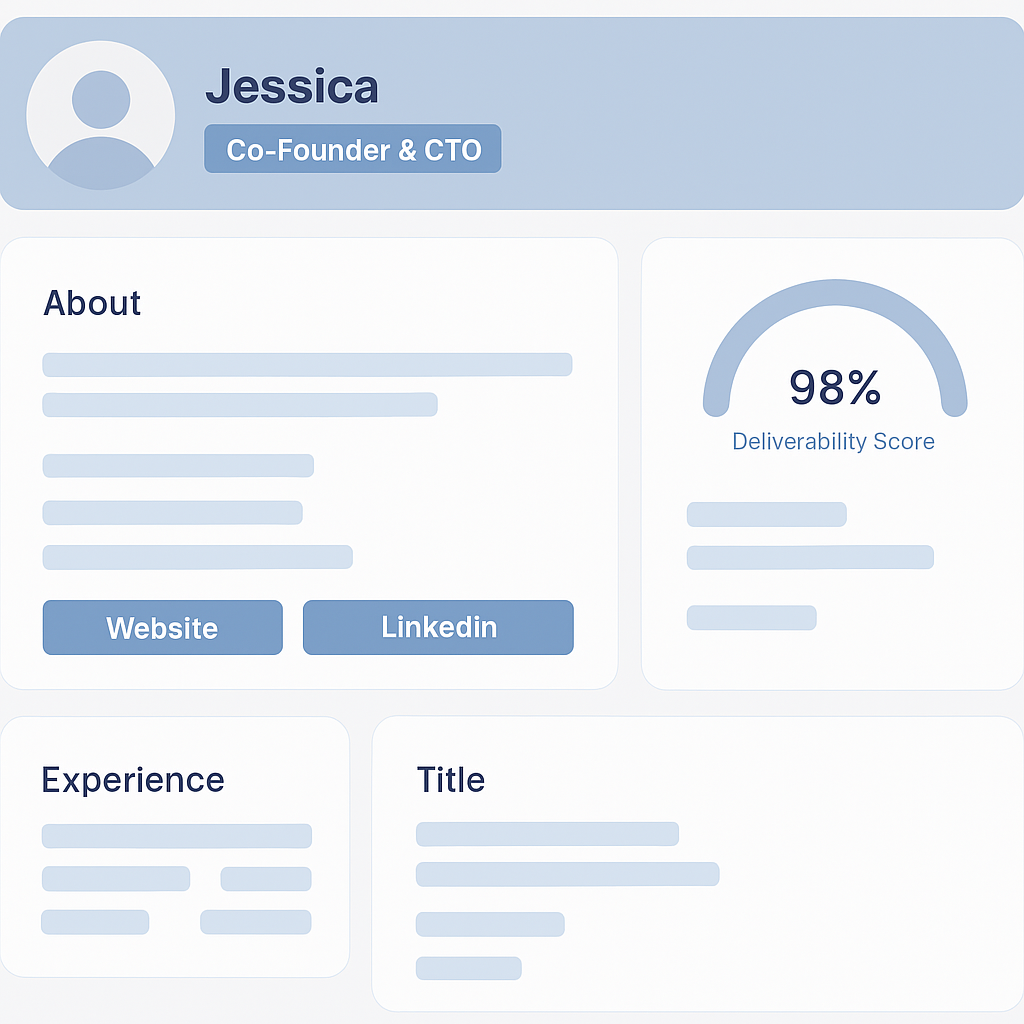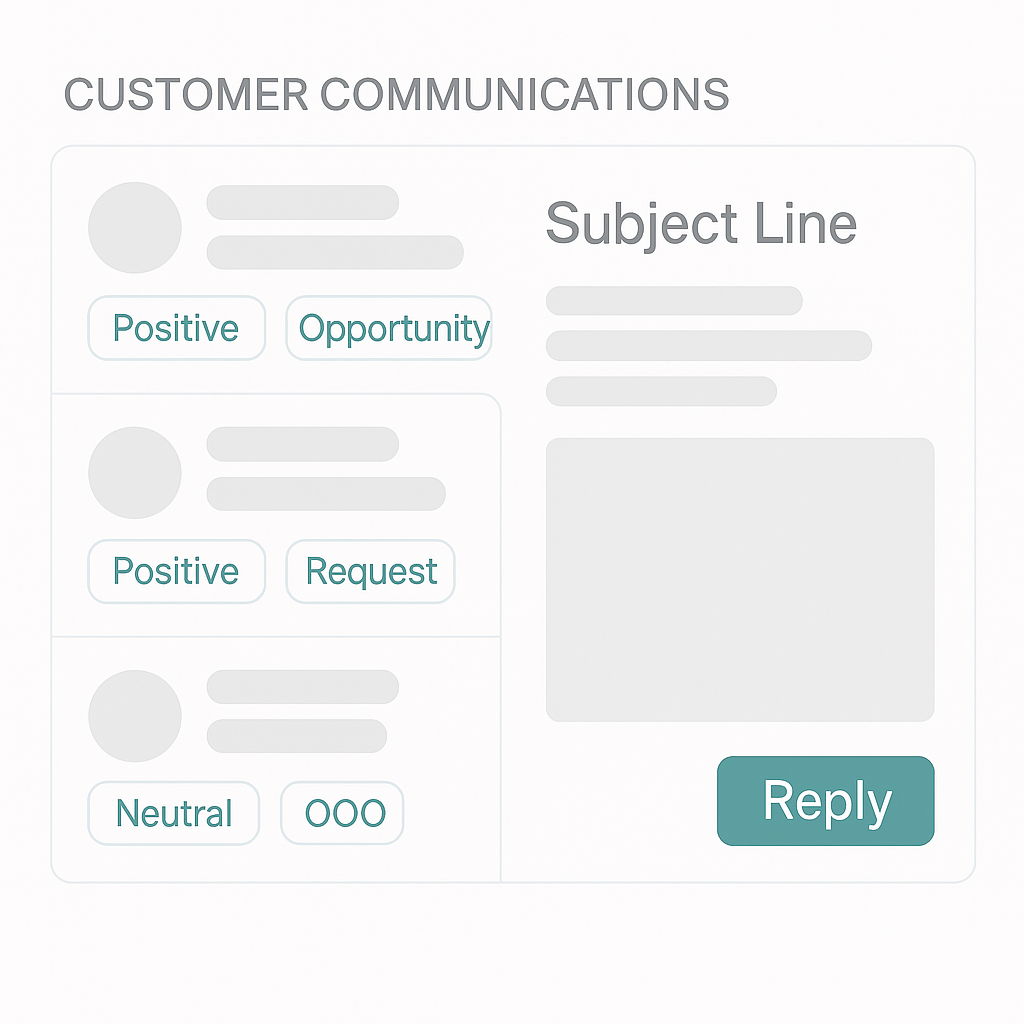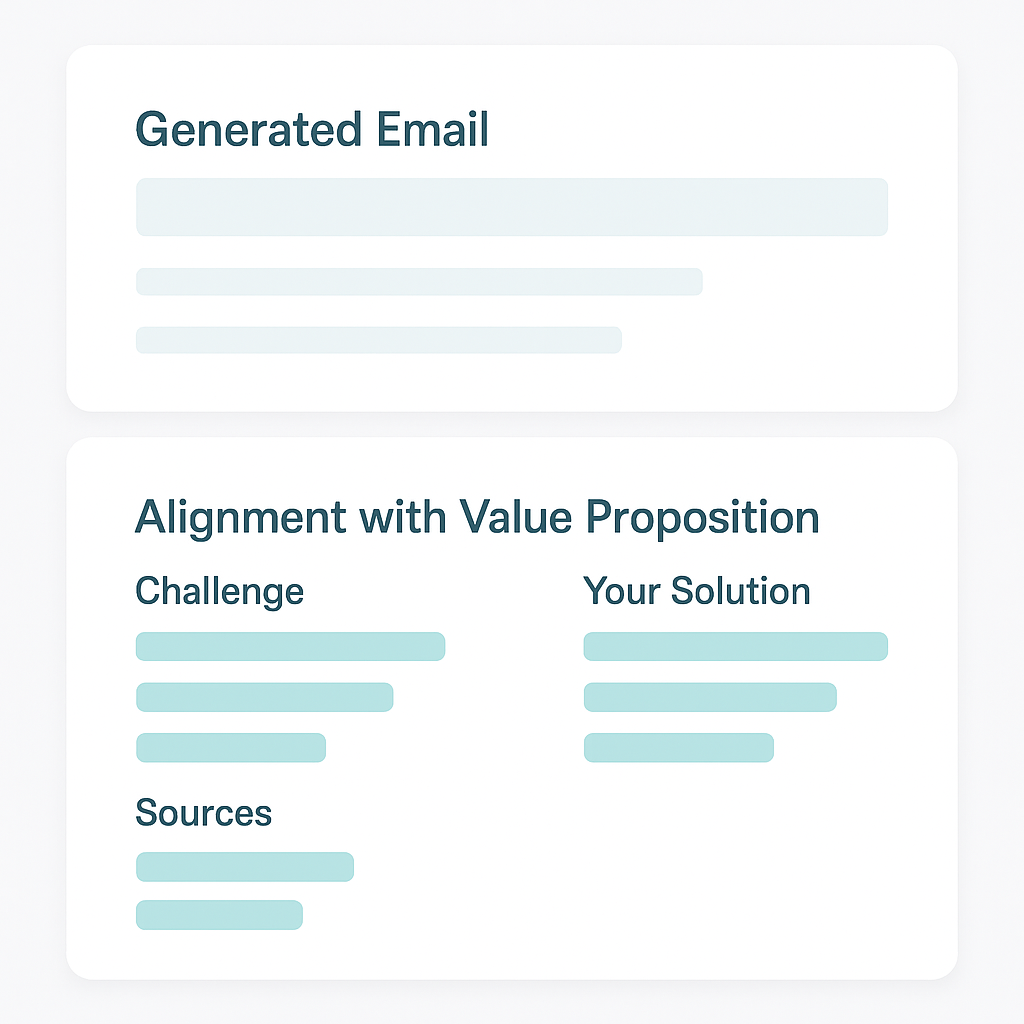Your Emails Land in Spam(And They Deserve To)
Stop burning your leads with lazy, generic outreach from your "AI SDR" that's turning your business development into digital pollution.
Already have an account?Sign in here
Your Calendar: Before vs After
Stop staring at empty calendars
Tell me if this sounds familiar:
Deliverability Disaster
Your emails land in spam before prospects even see them.
AI Mediocrity
That "AI SDR" sounds a lot like a robot, doesn't it?
Silent Treatment
Zero replies. Burned prospects. Wasted time. Oof.
That's what we thought :(
We get it, and here's how we fixed it:
Real-time sourced and tailored emails that don't get ignored.
AI SDR Tools
"Hi {{ FirstName }}, I saw your company raised a round. Thought you might be hiring!"
Nicest.ai
"Your recent $14M raise to expand into Europe adds pressure on your SDR team. But I couldn't find any mention of outbound channels in your GTM. Want to see what we did for a firm in a similar spot?"
Powered by live prospecting in an all‑in‑one inbox that eats bad pipelines for breakfast.
Real-Time Prospecting for the Post-Z*omInfo Era
If your "intel" is older than your last haircut, your prospects can tell. Nicest pulls live data from your professional network as you go so your message actually reflects reality.
Stop recycling last quarter's contacts and hoping for different results
Tap into job moves, company priorities, and news that happened this week
More signal, less noise - your outreach earns attention instead of the trash folder


Where Research, Outreach, and Results Live
Link your email accounts and watch the magic happen. Send personalized outreach, track replies, and manage everything from one unified inbox. No more juggling tabs or missing opportunities.
Slack Integration: Get instant notifications when prospects reply, right in your team channels
Real-Time Analytics: See open rates, reply rates, and engagement metrics without switching tools
CRM Sync & Webhooks: Auto-update your CRM and trigger Zapier workflows when prospects engage
True Personalization, No Template Nonsense
Most "customized" messages today? They're just templates in disguise. Nicest creates each email from scratch, with real research and source links. We guarantee it reads like you actually did your homework (because you did).
Each email is a value alignment that reflects your prospect's problems, tailored to your solution
Every email is unique, no copy-pasting allowed
Always sound like you give a damn

The result? Business-intellingent content and infrastructure built and proven to close.
Real results from real customers
"Nicest writes outbound exactly the way I do while doing my 3PM prospecting. It's the first AI that actually gets how I sell."
Start your first campaign free or your money back lol
You're not just getting software. You're getting strategy, muscle, and momentum. Find out what real personalization and deliverability does to your pipeline.
Already have an account?Sign in here